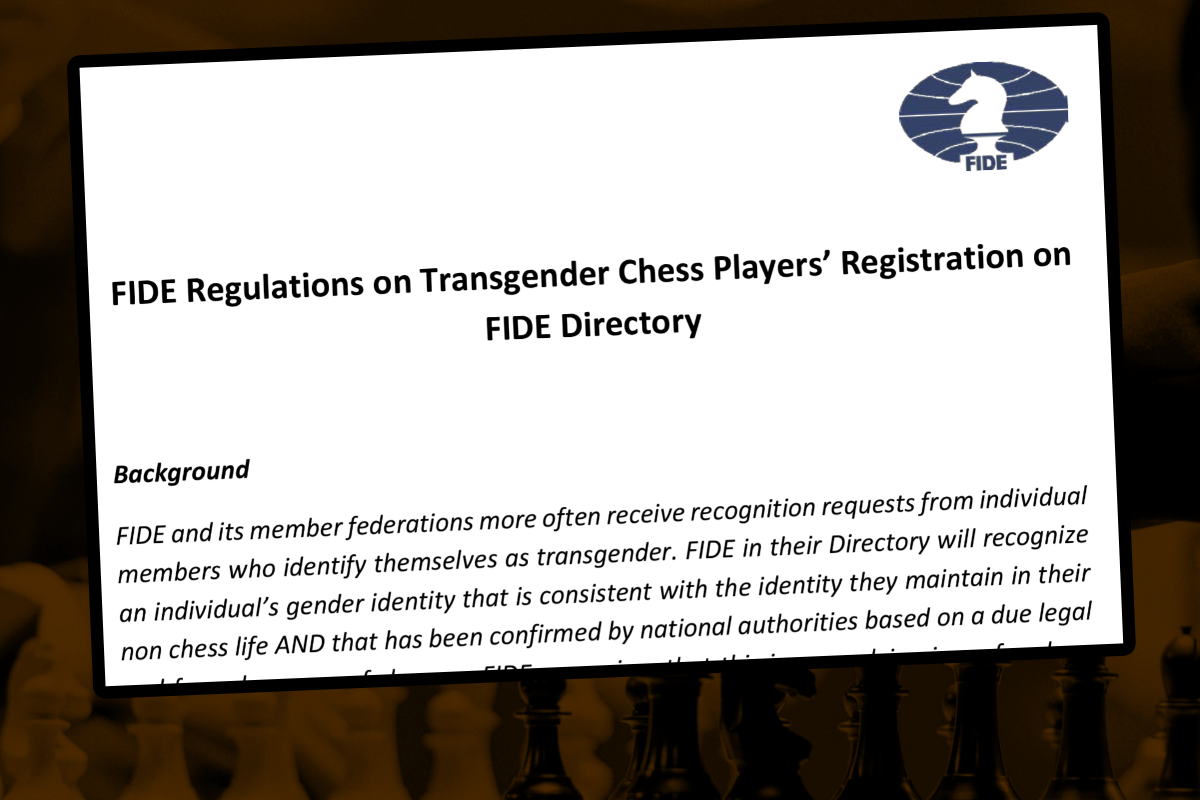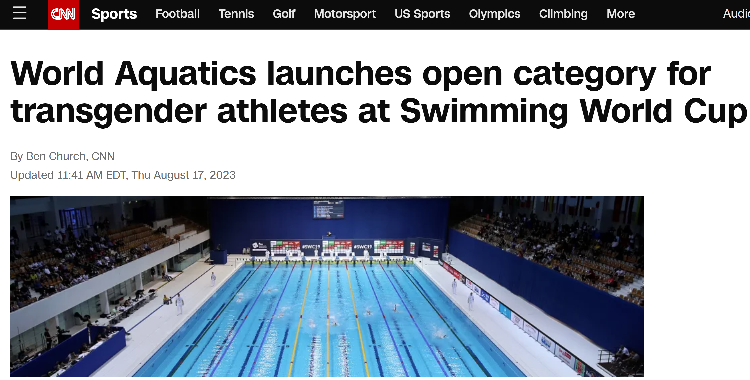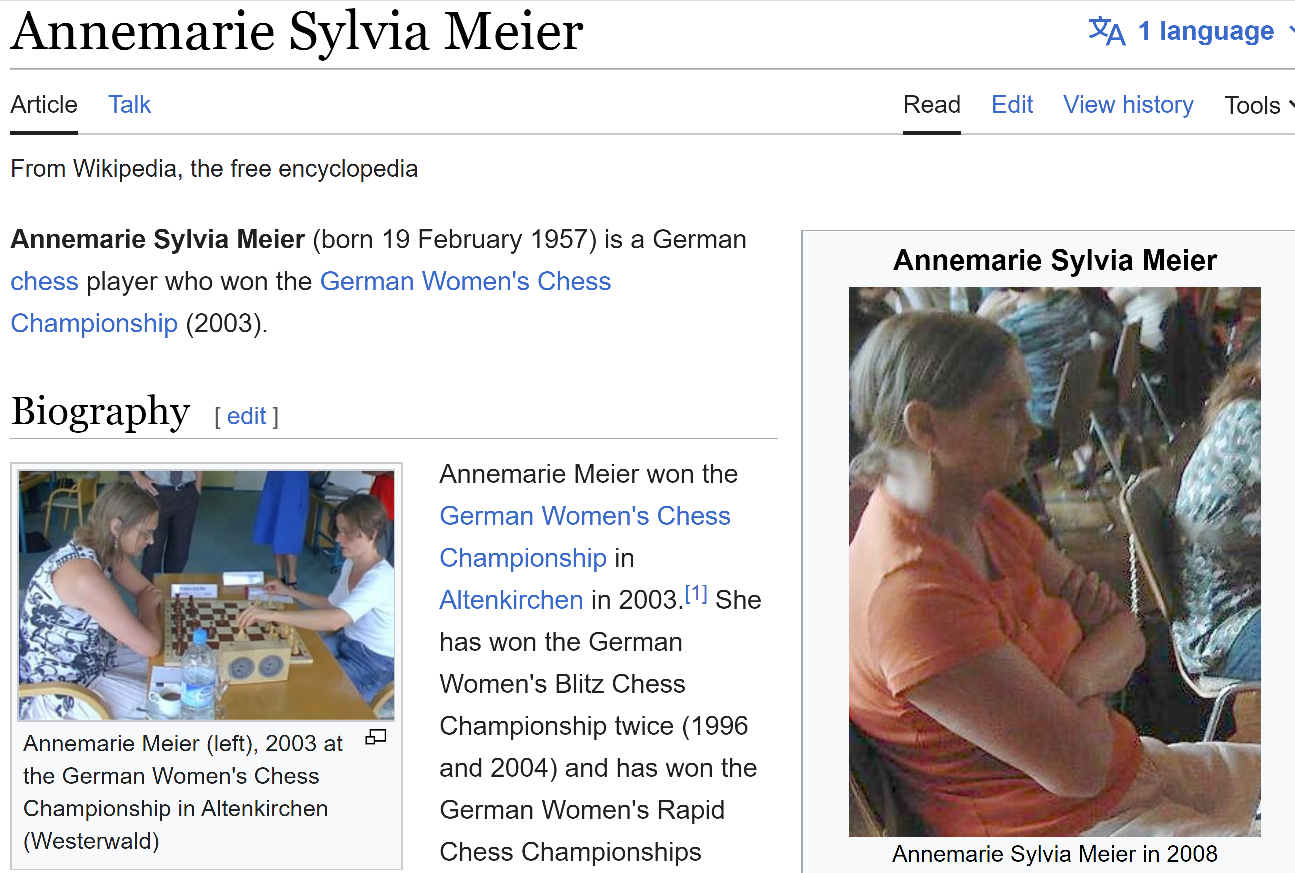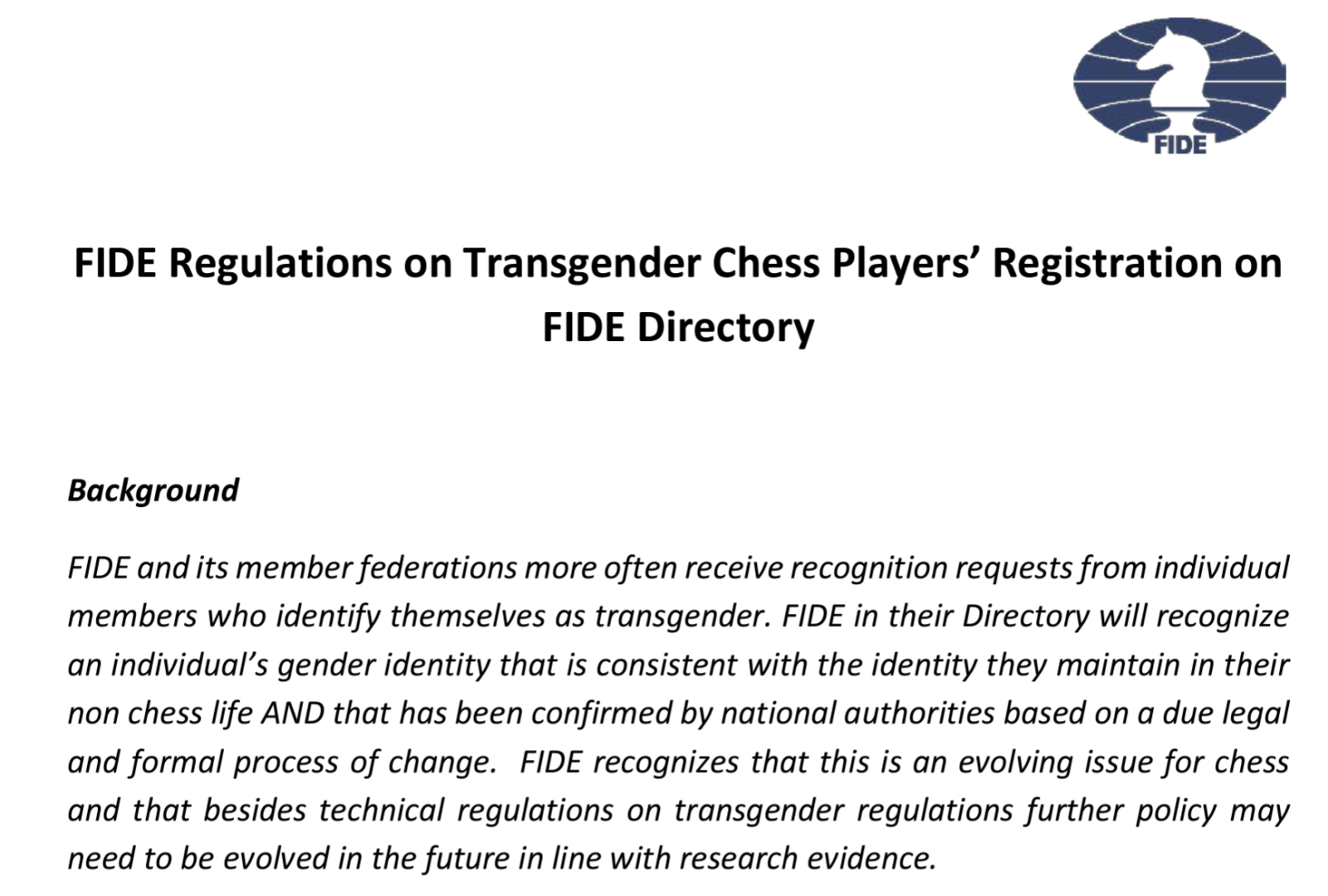


ChessBase 17 - Mega package - Edition 2024
It is the program of choice for anyone who loves the game and wants to know more about it. Start your personal success story with ChessBase and enjoy the game even more.
FIDE, and thus chess, is not the first world sports federation to take this position. A notable predecessor is FINA, the International Swimming Federation, which adopted this same position one year ago with the following stipulations:
The new gender inclusion policy, which is set to go into effect on June 20, 2022, says that male-to-female transgender athletes will only be eligible to compete in the women’s categories in FINA competitions if they transition before the age of 12 or before they reach stage two on the puberty Tanner Scale. -- CNN
This says that simply reconfiguring the testosterone/estrogen levels as an adult will not make a person born male suddenly transform into a female on all points. FINA is saying it starts earlier, much earlier (age 12 is the cut-off), and this affects the eligibility for a transgender male-to-female to compete in FINA events.
Fundamentals of Chess Openings
Starting out in chess is difficult, and this DVD aims to reduce that stress. Designed for beginner levels in openings, a brief introduction to the reasons we play some of the most common moves in popular openings like the Spanish and Sicilian is given.
So as not to leave transgender women out in the cold, excluded from the pleasure and desire to compete, a few days ago FINA announced a new category specifically for transgender athletes.

Regardless of one's thoughts on this, the physical disparity between men and women is not in dispute, so the concerns that surgical reassignment won't suffice to swing that are understandable. However, chess is a mental sport, and while physical stamina is a factor, raw physical strength is not a determining one in chess performance. So does this decision make sense, or is it backward thinking short-sightedness?
As a discipline, chess is still struggling to overcome a paradox it represents. On the one hand, there is ample documentation, well established, that states that the mean average IQ of women and men is identical, so if IQ alone were the key to chess performance, FIDE's position would be nonsensical at best.

Annemarie Sylvia Meier is the only known transgender woman to win a national title in the Women's category when she became German Women's Champion in 2003 at the age of 46. She came out as a transgender when she was 25. (source: Wikipedia)
Improve your chess with Tania Sachdev
On this DVD, well-known Indian WGM Tania Sachdev shows you how to evaluate certain positions and then find the right concepts and plans on the basis of her own games.
The problem is when facing the hard historical reality that only two women have ever broken into the overall Top 100 players: Judit Polgar and Hou Yifan. The causes of this have been studied and speculated and theorized, and no hard conclusions have been reached. Judit is by far the biggest outlier, having peaked at world no.8, and has championed the idea that it is an educational issue: all you need is to revise the way women are educated and the gap will disappear. There is little question that the way one is educated can impact self-image and that self-image is often a self-fulfilling prophecy: if you think you can’t, you won’t.
Still, with no end of admiration for her and her accomplishments, and setting no restrictions on the potential of females in chess, the fact is that Judit's two older sisters also enjoyed similar educations, but had nowhere near her level of success. This suggests that while her education may have been singular and successful, the biggest difference was her, and her genius. Just as raising 50 youths exactly like Magnus Carlsen is unlikely to magically produce 50 more just like him. It is far more probable that Judit does not represent an unexploited norm, but that she is the exception that confirms the rule.
Without disputing that the mean average IQ of men and women are the same, we also know that their brains are not strictly identical. Evolution has had its say after all. Is that decisive in chess? Who knows.

The statement by FIDE on transgender women effective August 21
Let us assume that it is possible that there is some difference that for whatever reason has an impact on chess performance. Because for now, like it or not, there is a significant difference in the results at the peaks, and it is likely that if it does exist that that difference won't be undone simply with gender reassignment.
What if a 2650 male grandmaster were to suddenly undergo such a change, would women embrace this new arrival now dominating all the prizes and results in the Women categories and events? Yes? What about a dozen new arrivals? This is the quandary that FIDE faces, and for now they are likely preferring to err on the side of caution to avoid disenfranchising all the sacrifices and efforts the non-transgender women have made to establish their place in professional chess.
Food for thought.